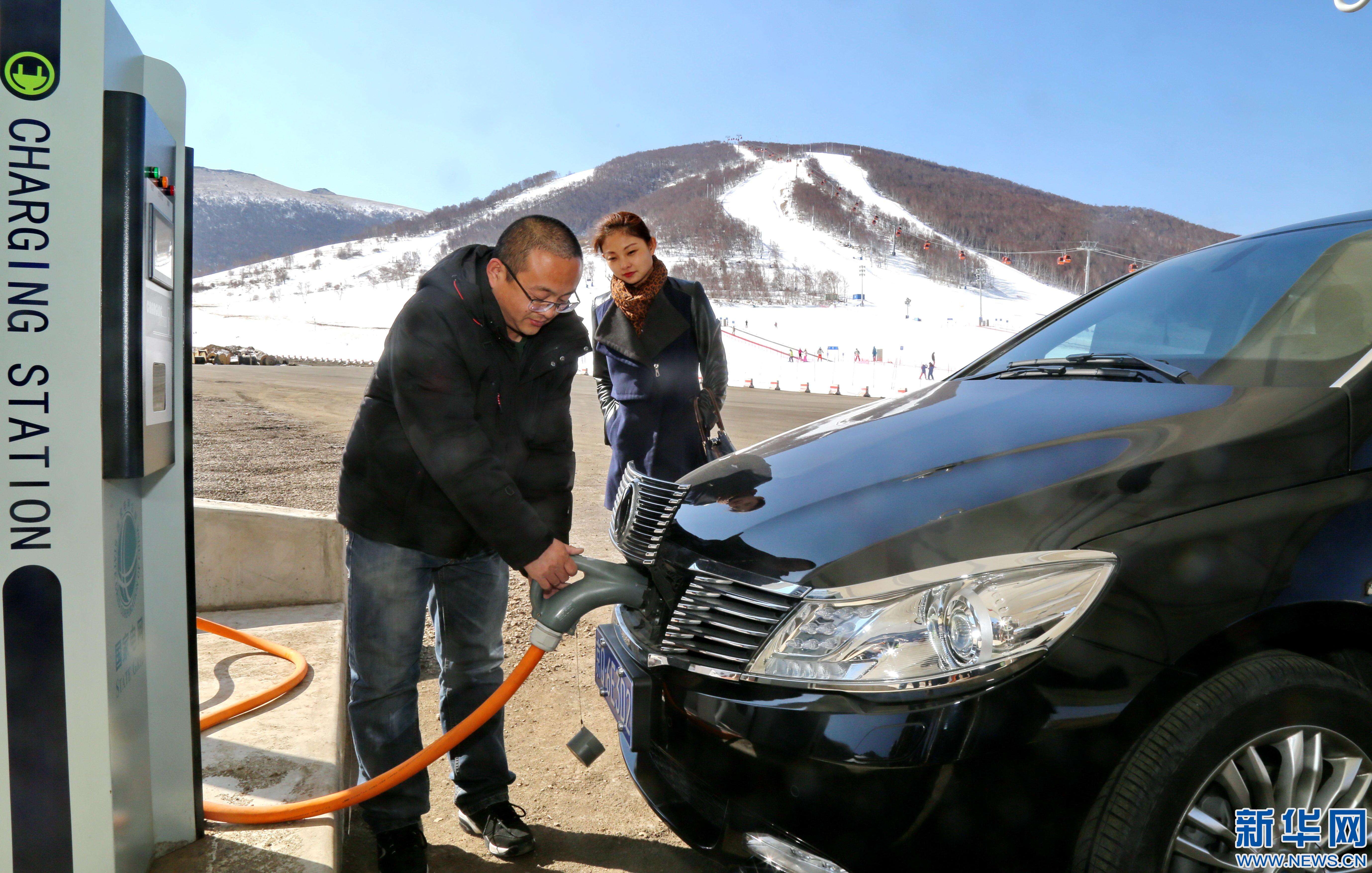


(Photo/Xinhua)
China's pure electric vehicle (EV) sales hit 278,000 in the first four months of 2019, up 65.2 percent from the previous year, the China Association of Automobile Manufacturers (CAAM) recently revealed.
The market growth, maturing industrial chain, and investment expansion all indicate that the EV sector has become a highlight of China's strategic emerging industries.
China has implemented a dual-credit scheme which evaluates the credit of carmakers based on the fuel consumption of gasoline cars and new energy vehicle (NEV) production, which has played a vital role in facilitating the development of NEVs.
According to Miao Wei, head of China's Ministry of Industry and Information Technology (MIIT), a total of 1.25 million NEVs were sold in China last year, up 61.7 percent year-on-year, 984,000 of which ran entirely on electricity.
By the end of 2018, 94 enterprises in China including joint ventures, as well as 24 overseas auto companies, had finished 107 credit transactions totaling 700 million yuan ($101 million) under the dual-credit scheme, said Miao. The project has largely improved product quality and further stimulated the market, he added.
Electric vehicles accounted for 1 percent of the auto market share in China for the first time in 2015, rising to 4 percent in 2018, said Wang Chuanfu, chairman of Chinese automaker BYD. Such rapid progress is one of the main features of China's EV market.
The market, which used to be driven by incentive policies, is now transforming in a market-oriented direction. Before 2017, 70 percent of EV sales came from the markets that were traditionally powered by policies, but the figure dropped below 50 percent last year.
Aion S, an EV model produced by Chinese carmaker GAC Group, received over 30,000 orders on the day it launched last month. According to Gu Huinan, general manager of GAC New Energy Co., first-tier cities were major markets for the company, but surveys indicated that consumers in lower-tier cities were also interested in EVs because of the lower associated costs.
Statistics released by the MIIT showed that 81 percent of China's pure EVs have a range of over 300 kilometers, and some models produced by leading enterprises such as Geely and BYD have a battery life of 500 kilometers. This improved battery performance has also propelled the development of the EV market.
The popularization of EVs is also inseparable from the increasingly improving environment of supporting facilities. Li Ye, executive director for regulation at the National Energy Administration, introduced that China was home to nearly 300,000 public EV charging piles and 460,000 private piles.
The total investment in the whole NEV industry chain has exceeded 2 trillion yuan, said Miao. The prosperous development has promoted the transformation of global mainstream auto enterprises. Major international carmakers are expected to launch their own NEV models in China around 2020.
 Fire brigade in Shanghai holds group wedding
Fire brigade in Shanghai holds group wedding Tourists enjoy ice sculptures in Datan Town, north China
Tourists enjoy ice sculptures in Datan Town, north China Sunset scenery of Dayan Pagoda in Xi'an
Sunset scenery of Dayan Pagoda in Xi'an Tourists have fun at scenic spot in Nanlong Town, NW China
Tourists have fun at scenic spot in Nanlong Town, NW China Harbin attracts tourists by making best use of ice in winter
Harbin attracts tourists by making best use of ice in winter In pics: FIS Alpine Ski Women's World Cup Slalom
In pics: FIS Alpine Ski Women's World Cup Slalom Black-necked cranes rest at reservoir in Lhunzhub County, Lhasa
Black-necked cranes rest at reservoir in Lhunzhub County, Lhasa China's FAST telescope will be available to foreign scientists in April
China's FAST telescope will be available to foreign scientists in April "She power" plays indispensable role in poverty alleviation
"She power" plays indispensable role in poverty alleviation Top 10 world news events of People's Daily in 2020
Top 10 world news events of People's Daily in 2020 Top 10 China news events of People's Daily in 2020
Top 10 China news events of People's Daily in 2020 Top 10 media buzzwords of 2020
Top 10 media buzzwords of 2020 Year-ender:10 major tourism stories of 2020
Year-ender:10 major tourism stories of 2020 No interference in Venezuelan issues
No interference in Venezuelan issues
 Biz prepares for trade spat
Biz prepares for trade spat
 Broadcasting Continent
Broadcasting Continent Australia wins Chinese CEOs as US loses
Australia wins Chinese CEOs as US loses